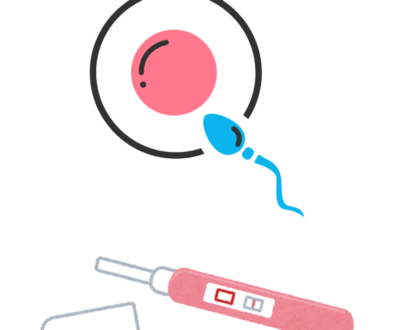How Stress Can Impact Your Fertility
In the journey of trying to conceive, stress can often feel like an unwanted companion. Stress affects both men and women who are struggling with fertility issues and the associated pressures of treatment, disappointment, or uncertainty. If you’re trying to conceive and find yourself stressed, you may wonder, “Is stress affecting my fertility?” Let’s explore this question and take a look at how stress manifests in the body, especially through the lens of Traditional Chinese Medicine (TCM) and the concept of Liver Qi Stagnation.
Does Stress Impact Fertility?
The link between stress and fertility is complex, and the scientific community is still debating it. Studies present mixed results—some show a direct link between high stress and lower pregnancy rates, while others have found no such connection. However, what we do know for sure is that going through fertility challenges is inherently stressful, and this stress can negatively influence other aspects of health, such as digestion, hormone regulation, inflammation, and even sleep quality. For many, reducing stress is not a cure for infertility, but managing stress can have a significant impact on physical and emotional well-being, ultimately supporting reproductive health.
What Is Stress?
Stress is a natural bodily response to challenging or uncertain situations—a form of tension that sets off the “fight-or-flight” mechanism. When stressed, the body goes through various physiological changes, including:
Hormonal Changes: Stress hormones like cortisol spike, which can lead to hormonal imbalances.
Respiratory Changes: Breathing may become irregular or shallow.
Cardiovascular Changes: The heart rate increases, which can put the body on high alert.
Nervous System Changes: Many people report trembling, sweating, or feeling anxious.
These changes can affect bodily functions such as digestion, hormone regulation, and immune response, which are all critical when trying to conceive. Stress may not directly prevent pregnancy, but it can certainly add barriers to the natural and complex processes involved in conception.
Stress and Liver Qi Stagnation in TCM
In Traditional Chinese Medicine, stress is closely associated with a condition called Liver Qi Stagnation. Qi, the life force or energy that flows through the body, needs to circulate freely for everything to function well. The Liver is responsible for ensuring the smooth flow of Qi, but when it becomes obstructed—often due to stress—Liver Qi Stagnation occurs. This imbalance is especially common in women and can have a significant impact on fertility.
Signs and Symptoms of Liver Qi Stagnation
Pre-Menstrual Syndrome (PMS): Feeling irritable or moody before your period is a sign of blocked Liver Qi. PMS, cramps, and breast tenderness are often seen in women with Liver Qi Stagnation.
Emotional Changes: Stress, anger, frustration, and feelings of being “stuck” are all emotional manifestations of Liver Qi Stagnation.
Mid-Body Symptoms: Bloating, breast tenderness, and digestive issues like constipation are all common signs that your Liver energy may not be flowing properly.
Pain and Cycle Irregularities: Liver Qi Stagnation can lead to pain, particularly before or during menstruation. Blood follows the flow of Qi, so if Qi is blocked, blood flow can also be disrupted, leading to pain and delayed cycles.
If Liver Qi Stagnation is left untreated, it can evolve into more serious issues, such as Liver Blood Stasis, which can contribute to conditions like fibroids, endometriosis, or other reproductive blockages.
The Impact of Liver Qi Stagnation on Fertility
For those trying to conceive, Liver Qi Stagnation can complicate the process. When Qi and blood are blocked, the uterus and reproductive organs do not receive the smooth flow of energy and nutrients that they need to function optimally. This stagnation can lead to hormonal imbalances, irregular menstrual cycles, and even implantation issues. The longer Qi Stagnation persists, the more likely it is to evolve into complications that further hinder fertility.
How Can Acupuncture and Chinese Herbal Medicine Help?
In TCM, stress is managed by moving and balancing the flow of Qi, which helps prevent Liver Qi Stagnation from taking hold. Acupuncture is one of the most effective methods for addressing this. By stimulating specific acupuncture points, acupuncture promotes the smooth flow of Qi, reduces cortisol levels, and helps restore balance to the body’s systems. Many patients report feeling calmer and more relaxed after acupuncture sessions, and often experience improvements in their menstrual cycle regularity and fertility health.
Chinese Herbal Medicine also plays an important role in treating Liver Qi Stagnation. Formulations often include herbs that work to relax and move Qi, tonify the Liver, and alleviate stress. Chinese herbs are often custom-tailored to the individual’s specific presentation, making them a highly personalised treatment method that can adapt to the unique needs of each person.
Tips for Managing Stress and Moving Liver Qi
Exercise: Exercise is one of the best ways to move stagnant Qi. Activities like running, swimming, yoga, or even dancing can help release built-up tension and get Qi flowing.
Spending Time Outdoors: The Liver is associated with the element of wood, and spending time in nature helps nourish and move Liver Qi. Walking in the park or spending time in a forest can have a calming effect.
Mindfulness Practices: Mindfulness activities such as meditation, journaling, or tai chi can be incredibly helpful in calming the mind and promoting the smooth flow of Qi.
Dietary Changes: Incorporate foods that help promote the flow of Liver Qi, such as green leafy vegetables, citrus fruits, and warming spices like ginger and turmeric. Avoid greasy, processed foods, and alcohol, which can stagnate Liver energy.
Acupuncture and Herbal Medicine: Regular acupuncture sessions and herbal prescriptions can work wonders in managing stress, balancing hormones, and improving overall reproductive health.
Final Thoughts
Stress may be an unavoidable part of the fertility journey, but managing it is possible, and the impact on your reproductive health can be profound. Understanding how stress manifests as Liver Qi Stagnation in Traditional Chinese Medicine can provide valuable insight into your body’s response to stress and its impact on fertility. Whether it’s acupuncture, herbal medicine, exercise, or mindfulness practices, there are effective tools to help you manage stress, move stagnant Liver Qi, and support your journey towards conception.
If you’d like to learn more about how TCM can support your fertility journey or want to book a consultation, feel free to reach out. Remember, you’re not alone in this—there is support, and there is hope.




